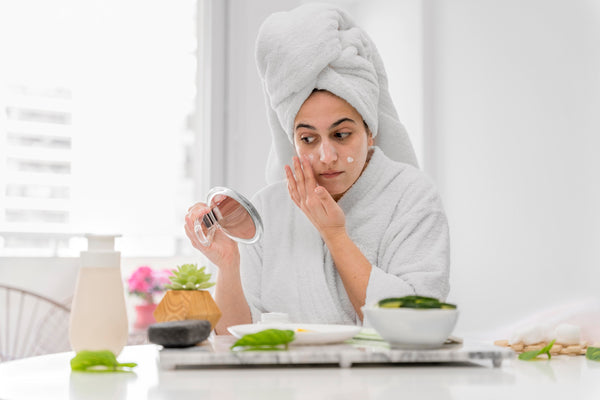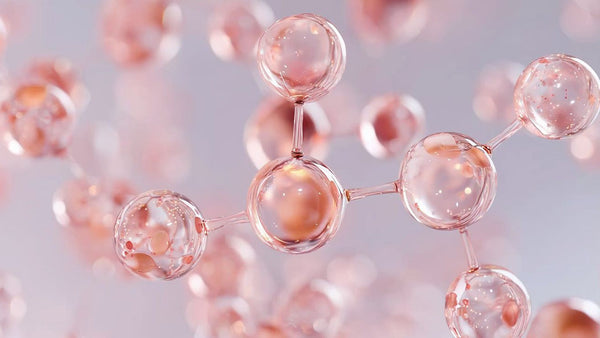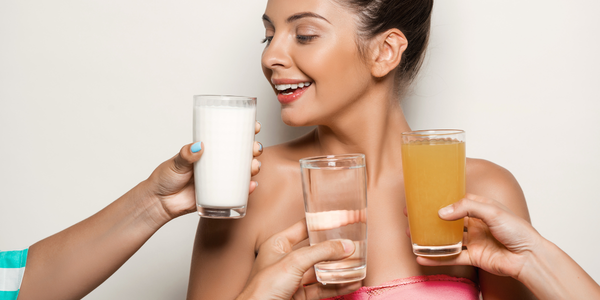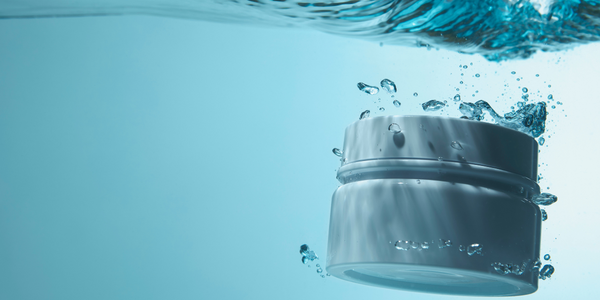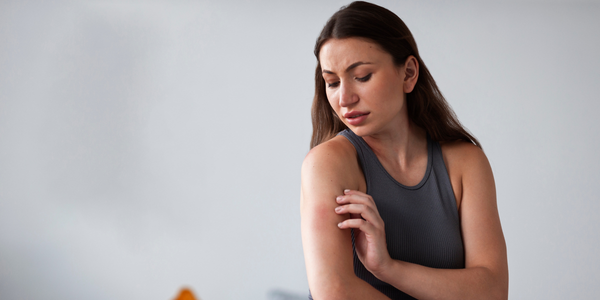Skin care is a very important step in your overall health regime. Not everyone gives it its due credence. Your skin is a barometer for what’s going on in your body. If you have radiant, glowing, blemish-free skin, you know you are healthy within, and when you are unwell, your skin is often the first thing to show the signs. Problematic skin can be a result of nutritional deficiencies in the body. Ensuring you get the right vitamins for skin can result in the reduction of dark spots, blemishes, extremely dry skin, pigmentation, redness, and patches among other things.
There are numerous vitamins for skin health that you can either get through food or in supplemental form. Additionally, you may find them in skin care products. In this article, we shall look at seven essential vitamins that you can take and their benefits for skin health.
Vitamins For Skin
Your skin is the largest organ in the human body that needs the right balance of nutrients to do its primary job of defending the body against different kinds of bacteria and pathogens. In order for your skin to look, feel, and appear healthy, nourish it with the right kind of vitamins that will work on fixing the problem from an inside-out approach. Given below are a few of the primary vitamins for skin.
Vitamin A
Vitamin A is an essential nutrient for both the upper and lower layers of your skin. It is known to protect the collagen production in the skin from any potential sun damage. That is why most of your sunscreen lotions contain this important vitamin.
Additionally, it helps heal cuts and scrapes, particularly if you are on steroids to lessen inflammation. Retinoids, a form of vitamin A, are used in oral and anti-acne topical medicines. Known for their anti-inflammatory properties, they help reduce the risk of acne and even slow signs of aging by coming in the way of anything that can even potentially interrupt collagen production. Foods rich in vitamin A include cheese, Eggs, oily fish, milk, yoghurt, carrots, fortified low-fat spreads.
Vitamin B3
This vitamin, in its niacinamide form, is one of the best vitamins for skin that helps prevent water loss and holds the skin’s moisture content. Keratin, which is the main protein present in your skin and the surface layer of your skin, is also increased in the body due to this vitamin. Keratin helps with the barrier protection that the skin has to offer. Furthermore, vitamin B3 slows down the aging process, helping smoothen the skin texture and reduce wrinkles and pigmentation. Yeast, poultry, meat, cereals, legumes, red fish (like salmon, tuna), milk, green leafy vegetables, seeds, nuts, coffee, and tea are a few examples of foods rich in vitamin B3.
Vitamin B5
Pantothenic acid (another name of this vital vitamin) is one of the most important vitamins for glowing skin. Research has shown that vitamin B5 plays a vital role in moisturizing the skin in improving the healing process of wounds if any. Furthermore, it helps reduce facial acne and the blemished caused due to them when consumed as a dietary supplement. Include foods like mushroom, chicken breast, fortified cereals, potatoes, broccoli, oats, and avocado among other things.
Vitamin C
As far as skin health is concerned, vitamin C or ascorbic acid is a very important antioxidant that benefits the skin at the cellular level. It helps to synthesize collagen and elastin- both naturally occurring protein fibers in the body, which help keep the skin tight, firm, plump, and radiant. In other words, it slows down the aging process and keeps symptoms like wrinkles, pigmentation, and dryness at bay. While vitamin C tablets for glowing skin are available in the market, you can include foods like brussels sprouts, potatoes, citric fruits, peppers, strawberries, and black currants.
Vitamin D
While everyone says the best way to prevent skin damage is to stay away from the sun, vitamin D, also known as ‘sunshine vitamin’, plays a very important role in protecting and rejuvenating the skin. This vital micronutrient, in its active role as calcitriol, aids in the growth, repair, maintenance, and metabolism of skin cells. It improves the skin’s immune system, whilst also slowing down signs of premature aging. Given that the sun is the best source of this vitamin, spending some time in the sunlight, between 9 AM and 11 AM will do you good. Other than that, consume fatty fish, seafood, mushrooms, egg yolks, and fortified foods, among other things.
Vitamin E
A powerful antioxidant, vitamin E helps reduce the damage done by the UV rays to the skin. When topically applied, this vitamin will help nourish the skin from the damage done by free radicals. This is another important vitamin for the skin as it helps cleanse and rid your skin of all its impurities and helps enhance skin elasticity. Additionally, when vitamin E is consumed in combination with lemon juice and applied to the skin, it can help lighten the complexion as well.
Vitamin K
An important micronutrient, vitamin K safeguards the process of collagen production and interrupts any possible damage to it. When collagen is produced effectively, your skin automatically develops a natural glow and radiance. Furthermore, it enhances its elasticity and youthfulness, preventing signs of premature aging such as wrinkles and fine lines. It also helps to maintain a clean complexion and has the ability to fade and lighten any kind of bruise marks on the skin. Any skin discolouration caused due to broken capillaries are also treated with this important vitamin.
Adding the aforementioned vitamins to your diet will surely help you get and maintain a naturally radiant skin. If you find it difficult to incorporate these vitamins to your diet, then our Daily Greens (a multivitamin from 39 farm-fresh greens, veggies, fruits, and antioxidant-rich superfoods) is a perfect solution for you! Enjoy a glass of this delicious drink to get your daily dose of vitamins!
FAQs
1. How do I know if my skin needs more vitamins?
Your skin often gives clear signs when it lacks essential nutrients. If you notice persistent dryness, dullness, redness, frequent breakouts, slow wound healing, or early signs of aging like fine lines and wrinkles, it may be a sign that your skin needs more vitamins. Nutrients like Vitamin A, C, D, and E play a crucial role in maintaining skin health, supporting collagen production, and protecting against environmental damage.
2. Can I get enough skin vitamins through diet alone?
A well-balanced diet filled with whole foods can provide essential vitamins needed for healthy skin. Eating a variety of fruits, vegetables, nuts, seeds, and lean proteins can help maintain a natural glow. However, factors like stress, pollution, aging, and dietary gaps may affect nutrient absorption. In such cases, supplementing with the right vitamins can be beneficial to ensure your skin gets the nourishment it needs.
3. What are the best sources of vitamins for skin health?
Vitamin A is found in eggs, dairy, carrots, and oily fish. Vitamin B3, also known as niacinamide, is commonly present in poultry, fish, nuts, and whole grains. Vitamin B5 can be sourced from avocados, mushrooms, and fortified cereals. For Vitamin C, citrus fruits, bell peppers, and strawberries are excellent choices. Vitamin D can be obtained through sunlight exposure, fatty fish, and fortified foods. Vitamin E is abundant in nuts, seeds, and spinach, while Vitamin K is naturally found in leafy greens, broccoli, and fermented foods.
4. Are vitamin supplements safe for improving skin health?
When taken as recommended, vitamin supplements are a safe and effective way to enhance skin health. They help combat deficiencies, promote collagen production, and protect the skin from oxidative stress. If it’s difficult to get enough vitamins through diet alone, high-quality supplements can provide the right support for a radiant and youthful complexion.














